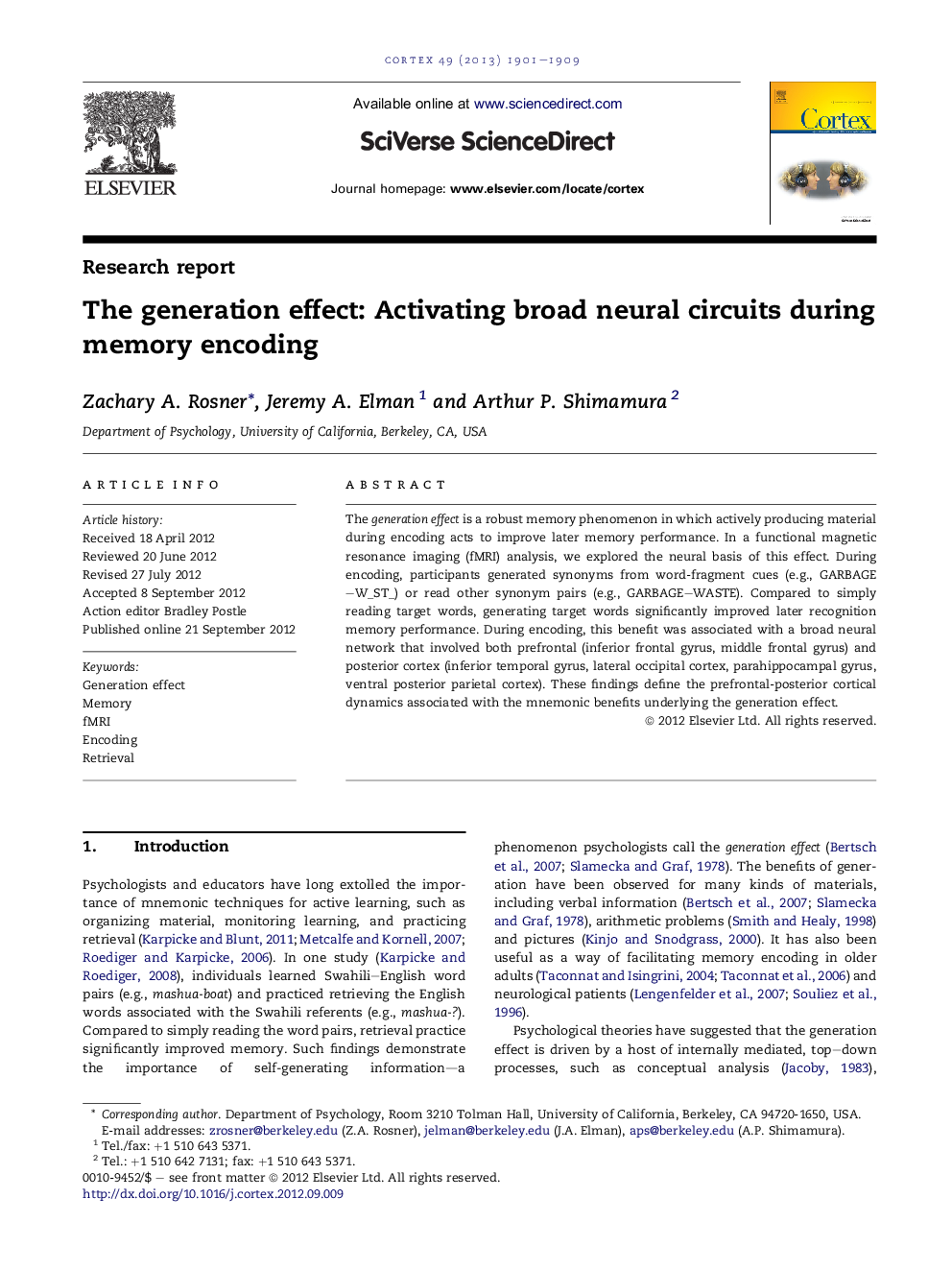| Article ID | Journal | Published Year | Pages | File Type |
|---|---|---|---|---|
| 10463091 | Cortex | 2013 | 9 Pages |
Abstract
The generation effect is a robust memory phenomenon in which actively producing material during encoding acts to improve later memory performance. In a functional magnetic resonance imaging (fMRI) analysis, we explored the neural basis of this effect. During encoding, participants generated synonyms from word-fragment cues (e.g., GARBAGE-W_ST_) or read other synonym pairs (e.g., GARBAGE-WASTE). Compared to simply reading target words, generating target words significantly improved later recognition memory performance. During encoding, this benefit was associated with a broad neural network that involved both prefrontal (inferior frontal gyrus, middle frontal gyrus) and posterior cortex (inferior temporal gyrus, lateral occipital cortex, parahippocampal gyrus, ventral posterior parietal cortex). These findings define the prefrontal-posterior cortical dynamics associated with the mnemonic benefits underlying the generation effect.
Related Topics
Life Sciences
Neuroscience
Behavioral Neuroscience
Authors
Zachary A. Rosner, Jeremy A. Elman, Arthur P. Shimamura,
